Life lessons from 20 years in Coaching
 I was on my indoor spinning bike sweating and straining up another hill with the trainer telling me to work harder and this reflection blog came to me pretty much fully formed. I knew it was around the 20-year mark we had been running the business, but got the notification from Linked In plus a few good wishes from connections. I guess as a reflective person and a Coach this would bring some thoughts to mind in terms of my learning over the years. Where am I with my coaching work? What difference am I making to people’s thriving? What have I learnt from doing this work? Added to the 20-year milestone I have recently been through a total hip replacement operation which I’m recovering from currently (no spinning for a while then); the introspection, time out, recurrent pain and a hefty dose of boredom has given me plenty of time to think!
I was on my indoor spinning bike sweating and straining up another hill with the trainer telling me to work harder and this reflection blog came to me pretty much fully formed. I knew it was around the 20-year mark we had been running the business, but got the notification from Linked In plus a few good wishes from connections. I guess as a reflective person and a Coach this would bring some thoughts to mind in terms of my learning over the years. Where am I with my coaching work? What difference am I making to people’s thriving? What have I learnt from doing this work? Added to the 20-year milestone I have recently been through a total hip replacement operation which I’m recovering from currently (no spinning for a while then); the introspection, time out, recurrent pain and a hefty dose of boredom has given me plenty of time to think!
It’s taken me quite a long time to get to “pure coaching” work having done lots of organisational development and running all sorts of different projects to make business ends meet. In the last couple of years I have got there and am now either working with people 1-1 as clients, or training Coaches as part of in-house Coaching Pools; a long road, but feel I have ultimately found what I love and am good at and grateful for that.
There are many interesting elements about working with clients; the power of simply being there and supporting clients getting to their own truths and life direction, the many that work and the few that don’t quite (and it’s not always straightforward to work out why), how deep you go before things stray into therapeutic territory, what your clients teach you, and the growing depth of experience you gain over the years that hopefully makes you better at what you do by you accumulating life lessons.
Here are my top ten lessons from both my coaching work and my own learning as a person not in priority order but hopefully a holistic set, along with a few questions to ask as you look at each:
- Growing happens our whole life: the importance of self-awareness and growth
 Our early years are important, but not necessarily defining. We now know the importance of our first few years through understanding and recognition of the importance of attachment theory. I learnt a lot about it doing the psychotherapy training I did at Metanoia Institute and have written a fair bit about this, from both a child attachment and adult attachment perspective.
Our early years are important, but not necessarily defining. We now know the importance of our first few years through understanding and recognition of the importance of attachment theory. I learnt a lot about it doing the psychotherapy training I did at Metanoia Institute and have written a fair bit about this, from both a child attachment and adult attachment perspective.
I have reflected on some of my early life experiences and some of the trauma I faced from a tough upbringing and being part of a very competitive group of siblings. I have learnt from my own experience and from my work with clients that with our own internal resources and the support of others around us we can create a “secure base”. We also know from the latest neuroscience theory about the idea of neuroplasticity; that we can learn to adjust and grow throughout our lives.
One of the things that my father in despair often said to me growing up was “the trouble with you lad is you think too much”. As I reflect on my journey so far there is a modicum of truth in that; I have always thought a lot about things and know it’s a double-edged sword. I know that I have become happier and more contented by understanding who I am, who others are and learning from the many mistakes I have made along the way. That curiosity extends to work with clients; what is their story and how did they get to who they are now; what bits of themselves do they like and what do they want to change? The clients that have travelled the furthest are the ones who have been prepared to step back, reflect on learning and especially work on some of the negative patterns they have got into, and emerge to take a different road.
I don’t just think this is a practical thing; as much as anything, it’s a state of mind that is growth and learning focussed. Stephen Covey uses the metaphor of growth being like “sharpening the saw”, an image I like; if the saw gets too blunt it won’t do its work properly and we need to keep on re-sharpening the saw time and time again throughout our lives.
- Practice self-care; have it high on the agenda…be present as much as you can and practice self-compassion
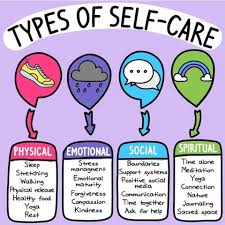 There has been so much more focus on self-compassion, mindfulness, self-care, call it what you will in the last few years; it’s become almost ubiquitous with numerous articles, podcasts, apps and the rest. Yet at the same time, I see lots of people out there living incredibly busy lives without much time to take a breather, to reflect, to give themselves time to make good decisions that embrace their overall physical and emotional health. In some cases, it feels like people have focussed very strongly on being the best they can be at work, rather than taking a whole life perspective that includes their emotional and physical well-being.
There has been so much more focus on self-compassion, mindfulness, self-care, call it what you will in the last few years; it’s become almost ubiquitous with numerous articles, podcasts, apps and the rest. Yet at the same time, I see lots of people out there living incredibly busy lives without much time to take a breather, to reflect, to give themselves time to make good decisions that embrace their overall physical and emotional health. In some cases, it feels like people have focussed very strongly on being the best they can be at work, rather than taking a whole life perspective that includes their emotional and physical well-being.
I’m not advocating that people have to meditate every day to be happy (!), but some form of mindfulness or put another away, awareness practice on a daily basis does really help us to thrive and be present in the moment, rather than wishing away our lives to get to the peacefulness of a weekend, or to get beyond a big event we are organising and is stressing us out. For some people this is the traditional sitting in a chair and meditating; for others it’s a run or a walk in nature, or just taking time to not be on high alert, to slow down and listen to what our bodies are telling us.
One client I have worked with has been dealing with this in a very practical way; a senior Manager working in a busy organisation with lots of responsibility and countless meetings on a daily basis, has been struggling to ft in daily exercise, partly for general fitness and partly just for time out. After exploring where exercise fits in their life, this individual has ended up fitting it in at early in the morning, and getting in to work at the “normal time” of 9am instead of getting into work at 6.45am ahead of everyone else.
I would include keeping a sense of humour in this life lesson; it’s amazing what a help it can be to laugh at something gone wrong, to be playful with ourselves and others when dealing in life’s absurdities.
- Nurture resilience- or “prepare; shit will happen”
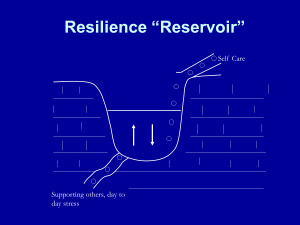 No matter how lucky we are in life, there are things that are inevitable including sickness, loss and disappointment on a periodic basis. We may be lucky and avoid having lots of things going wrong through our lives, but from people watching (and my own experience) I have observed that things bobble along quite nicely for a while for us, and then BOOM; 2-3 major things happen at once and we struggle to stay afloat.
No matter how lucky we are in life, there are things that are inevitable including sickness, loss and disappointment on a periodic basis. We may be lucky and avoid having lots of things going wrong through our lives, but from people watching (and my own experience) I have observed that things bobble along quite nicely for a while for us, and then BOOM; 2-3 major things happen at once and we struggle to stay afloat.
One of the images I find most helpful is that of a resilience reservoir (see image); the level of fill of the reservoir drops through the support we give out to others as Leaders, Coaches, parents, partners; its fulfilling and nourishing in many ways, but does take it out of us. We fill the reservoir from the top by the different elements of self-care we practice.
In a way this is a similar principle to the practice of self-care, but I’m trying to go a bit further here, and suggest having a preventative plan or a set of approaches that is ready for when the proverbial shit hits the fan. The resilience blog develops this a lot more and has a coaching exercise designed to help people think about their coping mechanisms and what other things would help them cope through adversity.
The other element that is part of the resilience mix for me is around vulnerability. How do we learn to feel, to express our vulnerability and to share it with a few trusted others? Are we able to ask for help, and how robust are our social networks rather than being vulnerable alone?
- The principle of intentionality-the best laid plans of mice and men……
 Having worked as a Coach along with learning from running a business, I have moved from what I think of as the literalness of goal setting to a more nuanced approach of intentionality. To be fair, there is something useful about goal setting theory when there is a clear path for us in life, like we know the career path we want to take; but lots of things in life are more complex than a simple goal setting exercise. When I looked at a dictionary definition of intentionality, it came up with: “the quality of mental states (e.g. thoughts, beliefs, desires, hopes) which consists in their being directed towards some object or state of affairs”. I suppose what I’m getting at is that life is more complicated than simple goal setting. We need to know when we are ready to take on a new venture, what obstacles will get in the way, and what we do with the lurking menace of recidivism; the inevitable fall back into old patterns we know from behaviour change theory, where we have to push through again and again to instil new habits and ways of thinking and being.
Having worked as a Coach along with learning from running a business, I have moved from what I think of as the literalness of goal setting to a more nuanced approach of intentionality. To be fair, there is something useful about goal setting theory when there is a clear path for us in life, like we know the career path we want to take; but lots of things in life are more complex than a simple goal setting exercise. When I looked at a dictionary definition of intentionality, it came up with: “the quality of mental states (e.g. thoughts, beliefs, desires, hopes) which consists in their being directed towards some object or state of affairs”. I suppose what I’m getting at is that life is more complicated than simple goal setting. We need to know when we are ready to take on a new venture, what obstacles will get in the way, and what we do with the lurking menace of recidivism; the inevitable fall back into old patterns we know from behaviour change theory, where we have to push through again and again to instil new habits and ways of thinking and being.
My best friend and someone I do a lot of coaching training work with represents an interesting convergence of approach over the years. Perhaps by virtue of the work I did for many years as a Consultant in organisational development, business growth and an Adviser/Assessor for the national “Investors in People” national standard, it pushed me towards planning a good deal; of having detailed plans for lots of things, including projects, master to do lists and daily priorities. I’m not taking away from some of the usefulness of this, but certainly working with someone who has an overall level of intention, but brings a lot of flexibility into how (and when) this unfolds without forcing it overly, has taught me to trust and go with the wind a bit more.
For me to have a sense of direction (for example knowing that I really wanted to focus on working with people 1-1 as a Coach) has been useful, but less and less I find myself setting goals like posting 2 articles a week on Linked in, and emailing 3 people about possible coaching work; it’s more of an exercise in flow.
- Be prepared to challenge and hold boundaries; even if you find it hard
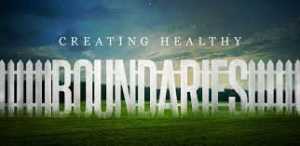 There is one area of personal development that can make or break our self-esteem and ability to have healthy relationships: it’s the ability to set and implement healthy personal boundaries. Personal boundaries are the imaginary lines we draw around ourselves to maintain balance and protect our bodies, minds, emotions, and time from the behaviour or demands of others.
There is one area of personal development that can make or break our self-esteem and ability to have healthy relationships: it’s the ability to set and implement healthy personal boundaries. Personal boundaries are the imaginary lines we draw around ourselves to maintain balance and protect our bodies, minds, emotions, and time from the behaviour or demands of others.
I haven’t been great at this historically; one of my big learning points has been about being able to challenge and not be a people pleaser too much of the time; with family, with friends, with work colleagues and indeed with coaching clients. John Whitmore’s underpinning foundations of the “GROW” model come to mind; self-awareness that we understand our behaviour and what we are doing, and responsibility for action; taking proactive responsibility to make changes with the support of others.
A client I have worked with for some time is one of the nicest people I know; self-aware, understanding and compassionate, great to work with, but someone who struggles with boundaries and being firm with others. This person over time has taken small incremental steps to holding more boundaries, saying no, calling out poor behaviour when they see it, and feels markedly happier in their own skin as a result.
- Nurture your creativity, however it finds an outlet
 I have played the piano, the guitar and sung for a long time, sometimes over the years in bands and sometimes just a half hour sat down playing once or twice a week. I came across a free live open band session recently going on in Thame and decided to go along. Just before I went into the studio where the jam session was, I nearly turned around and went home, nervous as I was of exposure; what if I couldn’t keep up? What if I didn’t know any of the songs? What if they thought I was rubbish? Once sat down on the keyboard ten minutes into the session playing the chords for Easy by the Commodores, I wondered what I had been worried about, and enjoyed the next 2 hours.
I have played the piano, the guitar and sung for a long time, sometimes over the years in bands and sometimes just a half hour sat down playing once or twice a week. I came across a free live open band session recently going on in Thame and decided to go along. Just before I went into the studio where the jam session was, I nearly turned around and went home, nervous as I was of exposure; what if I couldn’t keep up? What if I didn’t know any of the songs? What if they thought I was rubbish? Once sat down on the keyboard ten minutes into the session playing the chords for Easy by the Commodores, I wondered what I had been worried about, and enjoyed the next 2 hours.
Creativity is the ability to make or otherwise bring into existence something new that has a value – be it a new solution to a problem, a new method or device, or a new artistic object, form or idea. Either way, the end result of creative thought is both original and useful. I would also argue that it doesn’t have to have a social usefulness; it can be solely for the benefit of the creator. Being creative isn’t the “preserve of the artist”; we all have it in one way or another if we are able to push the limits of what we do and take on a challenge. It’s also interesting to reflect that usually, although not always, creativity comes after effort as much as sudden inspiration. Creativity takes both experience and effort.
We are all creative in our different and unique ways and need to find the outlets for the creative juices to flow whether it be through a new idea for work, through music, through writing or painting; do you know what your outlets are? Are there any dormant potential areas of creativity you haven’t looked at for some time?
- Connectedness and belonging are all
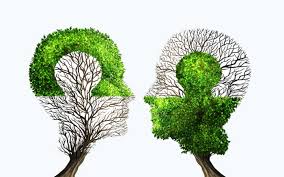 Maybe an iterative life lesson, but do we covet our connectedness with our partners, our family, our friends? Do we put our efforts into nurturing, maintaining and growing those links rather than take them for granted? Whether we are spiritual or not and believe in an afterlife, the most important thing I have found is to have a sense of belonging and connection though family, through friends and in my work. I have also found personally I don’t need lots of close friends; just a handful is enough. Those that I know I can rely on and who can rely on me through wonderful, uplifting times and tough, possibly desperate times.
Maybe an iterative life lesson, but do we covet our connectedness with our partners, our family, our friends? Do we put our efforts into nurturing, maintaining and growing those links rather than take them for granted? Whether we are spiritual or not and believe in an afterlife, the most important thing I have found is to have a sense of belonging and connection though family, through friends and in my work. I have also found personally I don’t need lots of close friends; just a handful is enough. Those that I know I can rely on and who can rely on me through wonderful, uplifting times and tough, possibly desperate times.
If I had to sum life up in a sentence it would probably be a line from Nat King Cole’s song Nature Boy where the most beautiful and profound lyric is “the greatest thing, you’ll ever learn, is just to love and be loved in return”. It’s what defines most our sense of belonging and contentment.
It’s also one of the key elements I see from people I have worked with as peers or clients. The ones who most enjoy what they do have that sense of belonging, have strong networks around them, and have the privilege of a good few people around them they trust and care about in their work.
Perhaps I should add to this area the power of being aware of something bigger than us through connectedness. Though brought in a very religious household, I have not practised any kind of formal religion as an adult, though am drawn to Buddhist mindfulness practice, have a sense of some universal presence and do some kind of mindfulness practice every day. Ultimately, maybe its as powerful as being able to see something bigger in the world than ourselves; a God, the sea, the mountains, the stars, whatever that is….
- Giving back
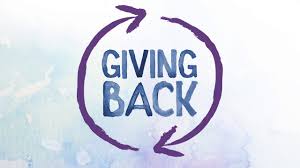 We know from positive psychology evidence that giving back is good for you. Studies show that any act of altruism is connected to positive physical and mental effects. This includes lower blood pressure, increased self-esteem, less incidence of depression, lower stress levels, and even longer life and greater happiness.
We know from positive psychology evidence that giving back is good for you. Studies show that any act of altruism is connected to positive physical and mental effects. This includes lower blood pressure, increased self-esteem, less incidence of depression, lower stress levels, and even longer life and greater happiness.
The link between giving, improved health and longevity may be the decrease in stress, which is often linked to health issues. In one recent study, researchers found that people who provided social support to others had lower blood pressure than those who didn’t. Giving activates the parts of the brain related to pleasure, trust, and relationships with others. We secrete important feel-good chemicals like serotonin, dopamine, and oxytocin — a rush that’s often referred to as the “helper’s high.”
Hoping I don’t sound pious, I do some pro bono coaching work, have set up a learning group of Coaches to support Coaches to learn and share their experiences, and also finding that I get a lot of feedback on the blog articles I write from across different parts of the world. I do want to get involved as a Trustee for a charity again, and will look at this in 2020.
- Work at something you love, and don’t work too hard
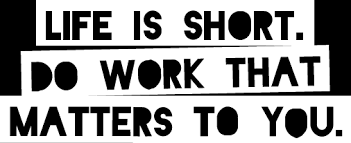 Bronnie Ware, an Australian nurse who spent several years caring for patients during the last 12 weeks of their lives, routinely asked her patients about any regrets they had or anything they would do differently. She observed the phenomenal clarity of vision that people would gain at the end of their lives and the common themes that surfaced again and again during these conversations.
Bronnie Ware, an Australian nurse who spent several years caring for patients during the last 12 weeks of their lives, routinely asked her patients about any regrets they had or anything they would do differently. She observed the phenomenal clarity of vision that people would gain at the end of their lives and the common themes that surfaced again and again during these conversations.
Eventually, in a book about the experience, she identified “The top five regrets of the dying.” They are:
- I wish I’d had the courage to live a life true to myself, not the life others expected of me
- I wish I hadn’t worked so much
- I wish I’d had the courage to express my feelings
- I wish I had stayed in touch with my friends
- I wish that I had let myself be happier
In relation to the wish not to have worked so hard, she observed: “this came from every male patient that I nursed. They missed their children’s youth and their partner’s companionship. Women also spoke of this regret, but as most were from an older generation, many of the female patients had not been breadwinners. All of the men I nursed deeply regretted spending so much of their lives on the treadmill of a work existence.”
Perhaps this is an element of the time we spend at work, but also the quality and enjoyment of that work. The World Health organisation estimate that most of the world’s population spend one-third of their adult life at work contributing actively to the development and well-being of them-selves, their families and of society. It’s a lot of your life to be spending doing something you either feel agnostic about or even hate…..one of people we knew locally had a calendar up more than 3 years before their retirement to count down the days until they were out of the hell hole of work (I know it’s a cliché, but they really did)
How much do you enjoy your work? Is there a secret work life you never got to do or be? What would your biggest regret be if this was your last day of life?
10: Be prepared to plough your own furrow; don’t be (too) swayed by others
 As a species, we live communally and are explicitly bound by societal rules and protocols to a strong degree; we are also influenced implicitly by peer pressure and conditioning to do the right thing. There are lots of good things about this that provide us with the connectedness and belonging that I mention in lesson 7. I don’t think its paradoxical though to really reflect on who you are and be your own person at least some of the time that might be different from others, and that others might not understand or appreciate.
As a species, we live communally and are explicitly bound by societal rules and protocols to a strong degree; we are also influenced implicitly by peer pressure and conditioning to do the right thing. There are lots of good things about this that provide us with the connectedness and belonging that I mention in lesson 7. I don’t think its paradoxical though to really reflect on who you are and be your own person at least some of the time that might be different from others, and that others might not understand or appreciate.
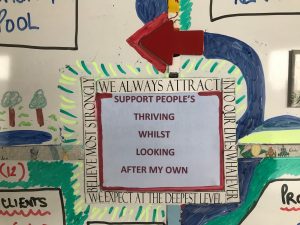 My own work vision is simple, honed over the years is a simple combination of support for others whilst looking after my own thriving. What is your own vision? Have you looked at what that is, what you really want for yourself?
My own work vision is simple, honed over the years is a simple combination of support for others whilst looking after my own thriving. What is your own vision? Have you looked at what that is, what you really want for yourself?
In terms of uniqueness, you will hopefully be looking at this list and both identifying which of the ten resonate with you, but also which you wouldn’t have if you put your own top 10 together. What is on your list? It will differ for you and might be an interesting exercise to identify your own top 10 principles.
I am far from the finished article, and as Yodah might say still “much to learn I have”, but grateful to have a set of principles to live life by and more fully appreciate all that I have.